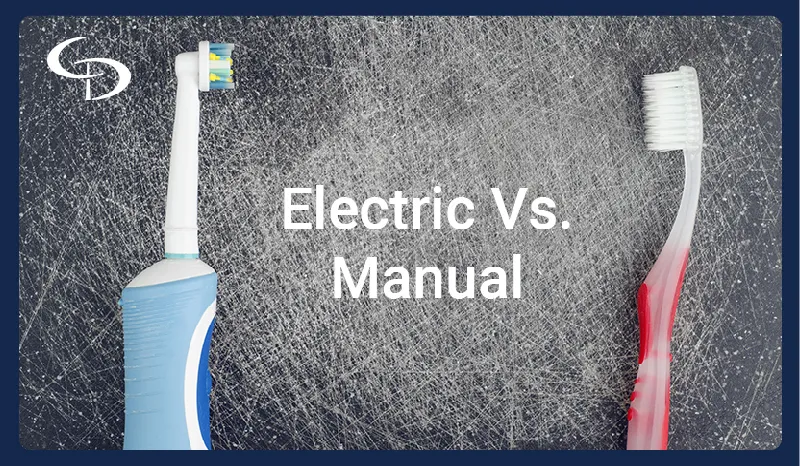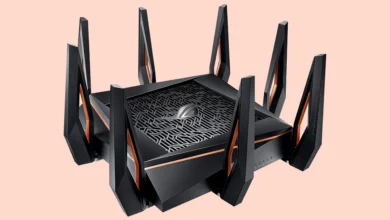Electric vs. Manual Toothbrush: Which Is Better for Your Oral Health?

Oral hygiene plays a crucial role in maintaining overall health, and choosing the right toothbrush is key to keeping your teeth and gums healthy. While manual toothbrushes have long been the traditional choice, electric toothbrushes have become increasingly popular due to their advanced features and convenience. But when it comes down to it, which is better for your oral health? In this blog, we’ll explore the pros and cons of both electric and manual toothbrushes, so you can make an informed decision about the best option for you.
Manual Toothbrush: The Classic Choice
The manual toothbrush is the most commonly used tool for brushing teeth. It’s affordable, easily available, and comes in various sizes and bristle types to suit individual needs. Despite its simplicity, many people use a manual toothbrush effectively to maintain oral hygiene.
Pros of Manual Toothbrushes
- Cost-Effective
Manual toothbrushes are typically inexpensive, making them a budget-friendly option. They don’t require charging or replacement batteries, making them an affordable choice in the long run. - Portability
Manual toothbrushes are small, lightweight, and easy to carry around, whether you’re at home or traveling. They don’t need any power source, so they’re perfect for on-the-go brushing. - Simple to Use
A manual toothbrush doesn’t come with any complicated instructions or features. It’s a straightforward tool that allows you to brush at your own pace and pressure. - Wide Variety
Manual toothbrushes come in a range of sizes, shapes, and bristle softness to cater to different preferences. This variety allows for personalized comfort during brushing.
Cons of Manual Toothbrushes
- Requires Proper Technique
To get the best results, manual toothbrush users must focus on using the correct brushing technique. If you don’t brush with the proper motion or apply too much pressure, it may lead to ineffective cleaning or even damage to your gums and enamel. - Less Efficient Plaque Removal
Manual brushes require more effort and time to remove plaque compared to electric toothbrushes. It’s possible to miss certain areas of your teeth if you’re not brushing properly.
Electric Toothbrush: The High-Tech Alternative
Electric toothbrushes have gained popularity in recent years due to their advanced technology and added features. Powered by electricity, these brushes vibrate or rotate to help remove plaque more effectively.
Pros of Electric Toothbrushes
- Better Plaque Removal
Electric toothbrushes are generally more effective at removing plaque than manual brushes due to their fast, consistent motion. The brushing action of electric brushes can clean areas more efficiently and reduce plaque buildup, leading to improved oral health. - Time-Saving
With automatic brushing motions, electric toothbrushes do much of the work for you. This means you’re more likely to brush for the recommended two minutes, ensuring a more thorough cleaning of your teeth and gums. - Built-In Timers
Many electric toothbrushes feature built-in timers to help you keep track of your brushing duration. This encourages more consistent and effective brushing habits. - Easier for People with Limited Dexterity
For individuals with physical limitations, such as arthritis or motor impairments, electric toothbrushes can be much easier to use. The automatic motion requires less manual effort, reducing strain on the hands and wrists. - Additional Features
Many electric toothbrushes come with additional features, such as pressure sensors that alert you when you’re brushing too hard, and multiple cleaning modes for tailored oral care. These can be particularly helpful for those with sensitive teeth or specific oral health concerns.
Cons of Electric Toothbrushes
- Higher Cost
Electric toothbrushes are more expensive than manual brushes, both in terms of the initial cost and the replacement brush heads. Depending on the brand and model, this could be a significant investment. - Requires Charging or Batteries
Unlike manual toothbrushes, electric toothbrushes need to be charged regularly or require batteries, which can be inconvenient when traveling or if the brush runs out of power unexpectedly. - Bulky and Less Portable
Electric toothbrushes are larger and less convenient to carry around, especially if you’re traveling. You’ll need to bring along a charger or spare batteries, which takes up extra space in your bag.
Which Is Better for Your Oral Health?
When it comes to oral health, both electric and manual toothbrushes can be effective tools for maintaining clean teeth, provided they are used correctly. However, research suggests that electric toothbrushes may offer superior plaque removal and easier brushing techniques. If you struggle to maintain proper brushing technique or have specific dental concerns, an electric toothbrush may be a better option for you.
On the other hand, if you have good brushing habits and prefer a more affordable, simple solution, a manual toothbrush may work just fine. The key to effective oral care is consistency and using proper brushing techniques, regardless of the type of toothbrush you choose.
Conclusion
Ultimately, both electric and manual toothbrushes can provide a thorough cleaning when used properly. The choice comes down to personal preference, convenience, and your individual needs. If you value ease of use, superior plaque removal, and extra features, an electric toothbrush could be the right choice. However, if you’re looking for an affordable, straightforward option, a manual toothbrush might be all you need.
Remember, no matter which toothbrush you choose, regular brushing, flossing, and visits to your dentist are essential for maintaining optimal oral health.



